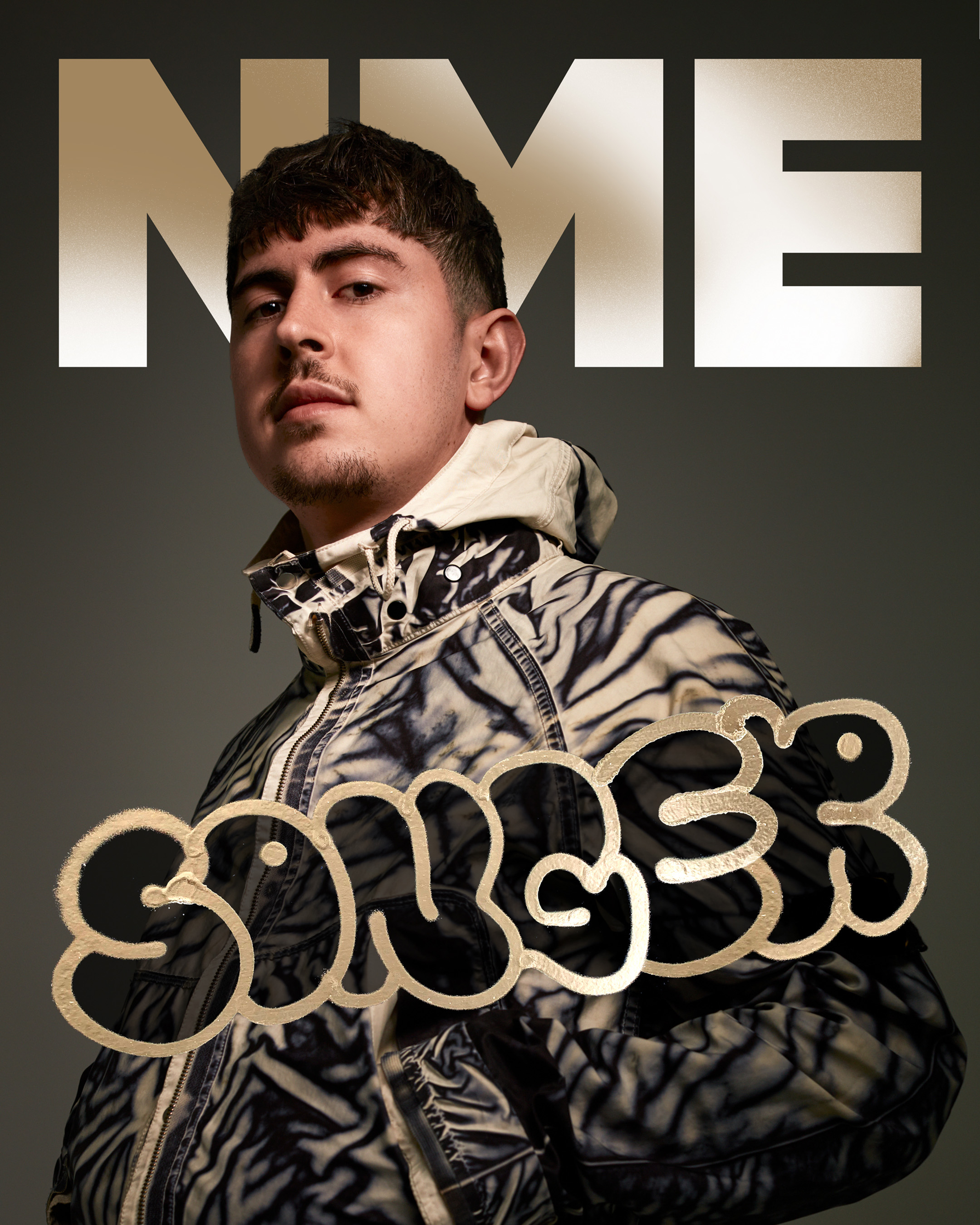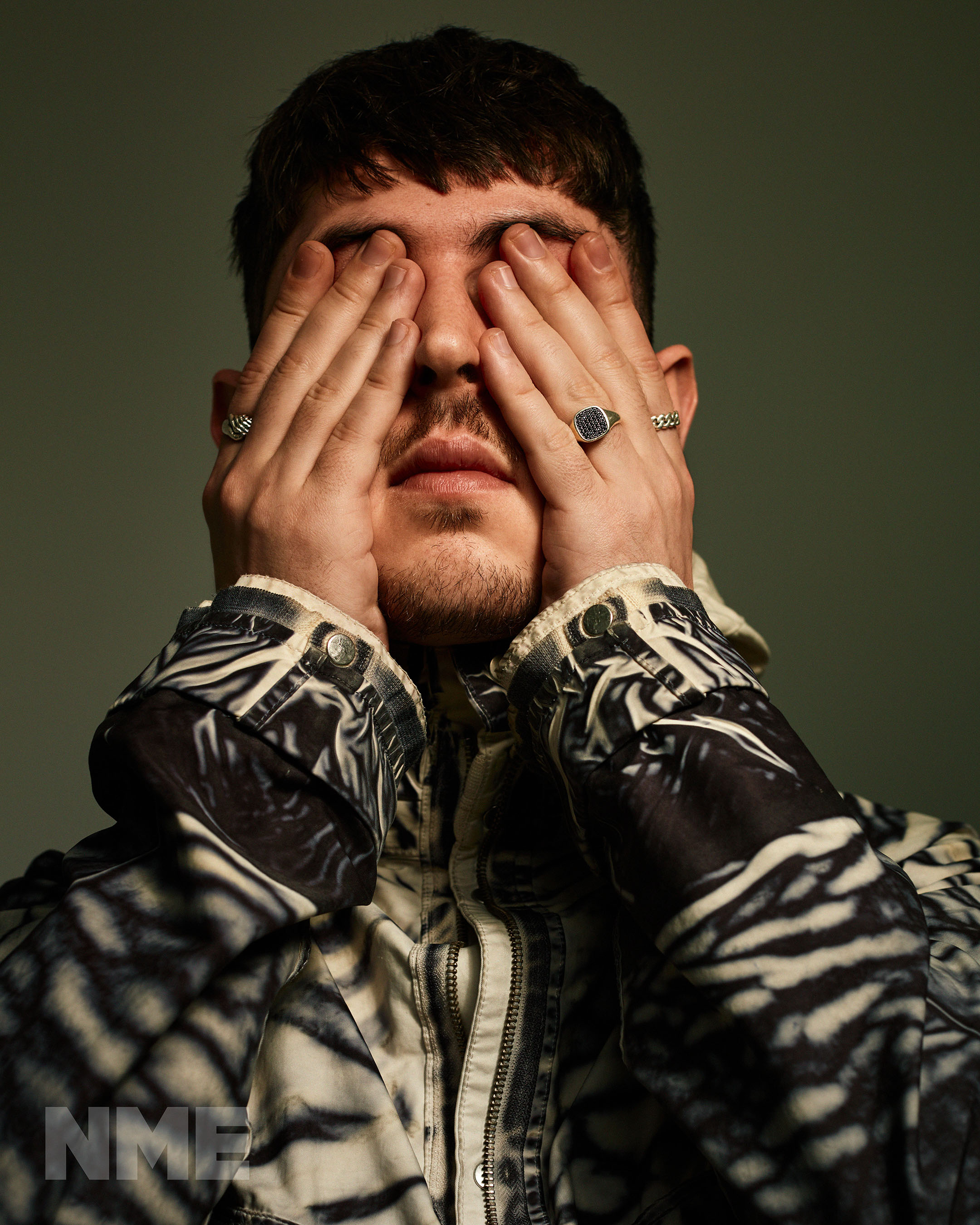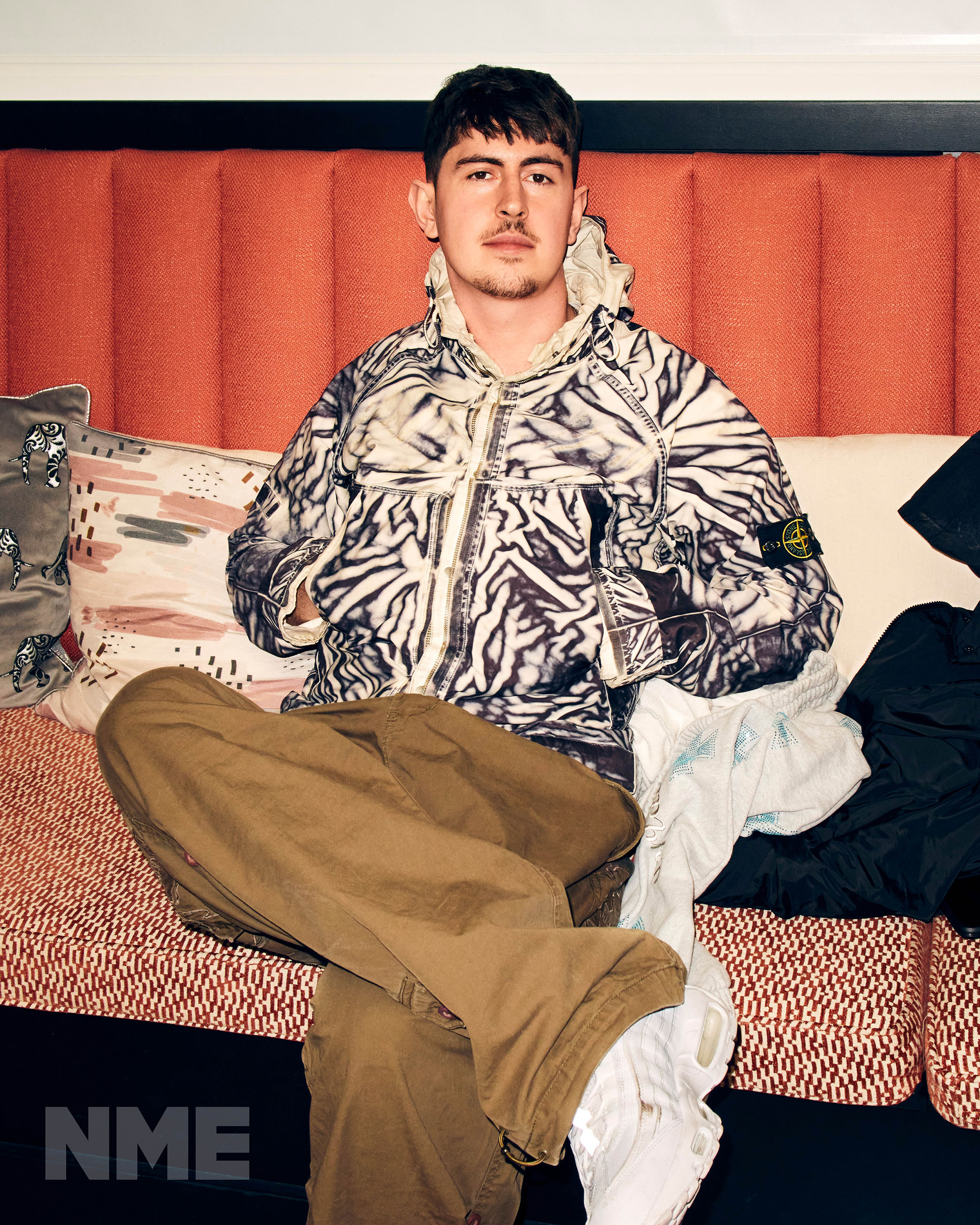The Bl@ckbox YouTube channel has 210,000 subscribers, with the average upload receiving somewhere in the region of 5-6,000 views. Nothing about these numbers is extraordinary, and this might not be the preamble you might expect for a channel that is responsible for some of the biggest viral moments in UK Rap. And yet, the tastemakers at Bl@ckbox have become renowned for curating great moments with artists who don’t necessarily possess the social currency required to be picked up by the all-knowing algorithms just yet. The simplicity in their approach is key: just a microphone, an instrumental, and a camera. As a result, their annual ‘U18 Cyphers’ have quickly become the best place for purists to discover burgeoning talent in the UK Rap space.

One alumni of these Cyphers, Songer, went on to have the most views in Bl@ckbox’s 14 year history, bar one; only Dave has pulled bigger numbers, inducting the Wokingham rapper into an coterie of generational talents like Potter Payper, Abra Cadabra, J Hus and Dave who have all had landmark freestyles on the platform.
Six years later, Songer still finds himself basking in the radiance of a camera, as he moves through various poses for his NME Cover shoot in north London. This time looking supremely comfortable and carrying himself with confidence, though he’s now swapped the garish orange Palace jacket for a Stone Island number. When the sounds of the camera shutter are no longer ringing we nestle ourselves in the corner of the studio to unravel the winding road to success.
Most recently, there’s been chart success in the past year: his single ‘Toxic’ and third album ‘Skala’ have both reached the Top 40 in the UK. The lyrics for the former, ironically, were originally written for his Bl@ckbox debut, and the fact that it’s been able to achieve virality for essentially the same track twice, is as much a testament to the fan base he’s able to mobilise, as it is for the timelessness of lyrics he first penned as a teenager.
“Those bars might be some of the most streamed freestyle bars ever,” he laughs. “It’s a wicked part of my life to look back on, and I think ‘OK, well, at least if nothing else happens, that one’s pretty legendary.’”

Plenty has been happening though, and the past year has been nothing but forward momentum for the Berkshire-hailing artist. In August, he made a special homecoming appearance at Reading Festival last year, and also secured huge placements alongside the likes of Chase & Status and D Double E. His summer banger ‘Vino Bandit’, a collaboration with K Motionz, was also released, a daring attempt to meddle with Dirty Danger’s handiwork on Ruff Sqwad’s Grime classic ‘Together’. The changes are minimal, just gentle nudges towards drum’n’bass territory, but serves as the perfect arena for Songer to display his abilities to tackle instrumentals of all shapes and sizes. The fact that he’s achieved all this while remaining completely independent from major label influence, only serves to make these feats even more impressive.
The release of his latest mixtape, ‘The Price of Therapy’, in March serves as a reminder that the hits are not what defines his artistry. “If you came to my shows, obviously towards the end you’ve got ‘Toxic’ and ‘Vino Bandit’. But the majority of the songs that go off, and have people screaming the lyrics to, they’re not the hits, they’re the album records. I’ve always just wanted to be an album artist and not chase hits.”

Tracks like mixtape opener ‘Thought Park’ showcase his ability to layer his verses with depth, and are packed with lyrics that lend themselves towards replayability. ’Evinha’, meanwhile, provides Songer with the space to combine some of his own melodies and nimble rhyme schemes for a cinematic drum’n’bass closer.
At his headline show at London’s Kentish Town Forum days earlier, NME witnesses Gen Zers draped in Corteiz emphatically reciting every song – not just the hits – just as Songer had boasted they would. Fashion sense aside, the audience demographics tell a wider story about the way in which UK Rap culture has become deeply entrenched in Middle England. The fans now speak broken MLE (Multicultural London English) with vernacular borrowed from their favourite UK rappers, align themselves with Black-owned British brands like Benjart, Trapstar and, of course Corteiz, but often return to suburban homes removed from many of the realities in which the culture was born out of.
“I’ve always just wanted to be an album artist and not chase hits”
Songer himself has never shied away from his own middle class origins. “I’d rather grow and get bigger and bigger in an accurate representation of who I am, and it’s not like I come from a bloodline of money or anything close to that at all, my Dad just worked the same job for 35 years until he was probably two off the top. He worked hard for me so the least I can do is acknowledge it.”
Where some artists may hide or alter elements of their past or personality in exchange for what they believe might be credibility, Songer’s M.O has always been openness. Songs like ‘Find Peace’ depict the journey to happiness that we’re on every time we simply wake up. Achieving happiness is a process, rather than a constant state, and sometimes Songer is in this flux just like the rest of us: “I’m an advocate for happiness. I love life, but I do have those moments, or days or periods where I’m not, and so it reflects in my music.”

This integrity and fearlessness to be unashamedly honest is ultimately what has brought him success, but what is the personal toll of such candour? “It feels like a lot of different roles that I have to play for a lot of different people, and I probably put way too much pressure on myself to succeed in that, rather than just being my own person at my own speed.”
What actually makes his story so compelling in the current landscape is his chameleonic musical abilities; although he might be best known for a specific type of music, he’s certainly not bound to it. These nomadic musical tendencies are reflected in the expansive musical palette that Songer draws from when he’s creating. “My music taste has always been super broad, because I was always into grime or rap music, but I also was never limited to it. I loved Oasis, I loved James Morrison and artists like that in all different genres.”
This, he says, enables him to broaden his appeal and reach without damaging his validity because he’s been experimenting since the very beginning of his career. “When I started making music I was pretty fearless in terms of what I wanted it to sound like. I could write a song that was grimey, but I could also write an R&B tune the next day, and because I’ve always put music like that out there, it feels like people would say that it’s on brand.”
“There’s different roles that I have to play for a lot of different people”
It’s clear Songer only makes music on his terms, giving himself the space to include all the different aspects of his personality across his discography. One minute it might be something relating to a deeply personal anxiety, on tracks like ‘I’d Rather You Cheat’, but then it might segue to an entirely different emotion on ‘Balling’. These transitions never look out of place, in fact they are precisely what fans seem to gravitate to.
To be able to sidestep genre lines so deftly while still tapping into his core audience is an important factor in understanding why Songer has been able to grab a sizable share of the market. Or is it because Songer is his surname and, therefore, he was destined to become a dominant force in music? Based on Songer’s approach to faith across his five bodies of work, you’d be forgiven for thinking that he’d have little time for something as nebulous as nominative determinism, but it’s quite the contrary.
“Songer’s my surname and I’m super passionate about music and I work hard for it, but I didn’t ask to be passionate about it, I just am. And Songer also means ‘to think’ in French, so everything just kind of made too much sense for me to ignore it, which is why I believe in destiny. There were too many signs in my life that told me that I’ve gotta chase this with everything I’ve got.”
Songer’s ‘The Price of Therapy’ is out now
Listen to Songer’s exclusive playlist to accompany The Cover below on Spotify and here on Apple Music
Words: Seth Pereira
Photography: Tom Oxley
Location: TYX, Tileyard
